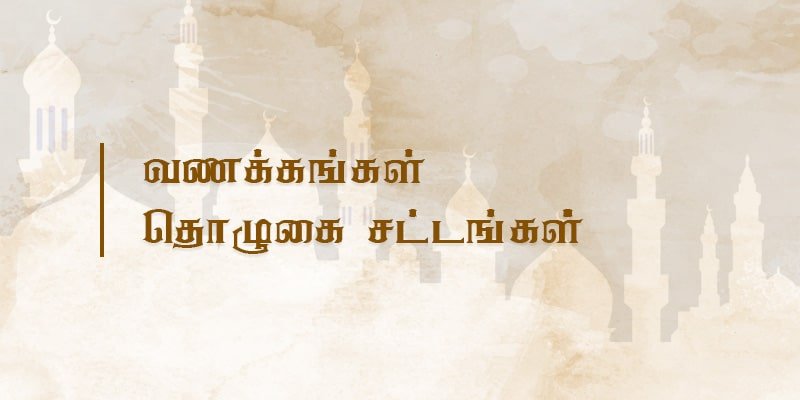86.Words in the Quran that convey dual meaning.
This verse (3:7) has been misunderstood by most Muslims, hence let us delve a little deep into it.
The Quran says its verses are of two types, they are 1)Muhkam, and 2)Mutashabih. There is a difference of opinion between what is muhkam and mutashabih.
The verses that cannot be twisted to convey a wrong meaning are called muhkam.
The ‘mutashabih’ verses are those that in spite of being understood by the pious in their correct meaning, are bent by the evil to suit their convenience.
But some people distort this concept by saying the meaning of Muhkam verses as those that could be understood by everyone and Mutashabih as verses the meaning of which Allah alone knows.
Though the majority are of this opinion, on analysis it could be found this view is totally wrong and underestimates the power of Al-Mighty.
The reason for the difference in opinion about the ‘Mutashabih’ verse 3:7 is the contradictory meaning they give to it.
Our translation of the verse 3:7 is as follows:
(Oh Muhammad) He blessed you with this book wherein verses of assurance are also there, and these verses are held as the mother of this book. There are other verses in the Quran that give a dual meaning. People whose hearts and minds are afflicted with disorder seeking chaos and confusion look out for explanations suiting their desire and keep following them. Except Allah and the learned excelling in knowledge, others will not be able to understand these verses. “They say ‘We believed these verses; everything is from our Lord”. Except the knowledgeable others do not ponder over the verses.
As per this translation of ours, one comes to understand that there are two types of Quranic verses as ‘Muhkam’ and ‘Mutashabih’. The ‘Muhkam’ verses are those that could be comprehended by all, and ‘Mutashabih’ verses are those the meaning is best known to Allah and the learned people. But the ignorant and the misguided will misunderstand these verses and go astray.
Let’s look into some other translations:
Oh Prophet, He is the One Who sent down this book. In this are verses with absolute clear meanings that form the fundamentals of this book, and in addition it contains verses that cannot be comprehended (by you) and whoever is afflicted with bias in their hearts, will look out for verses with ambiguous meanings. They do this to create confusion and use it to further their evil cause. However, except Allah others will not be able to decipher the true meaning of these verses. And the steadfast of the learned (though do not fully understand the meaning of these verses) would say “We believed these verses (Muhkam and Mutashabih) are from our Lord and those except the wise will not get enlightened by them.
Translation by John Trust.
‘He is the One who sent down this Book to you’. ‘There are in its clear verses’. These verses form the fundamentals of this Book, other verses are those that are (confidential or secretive) known as Mutashabih (verses) However those afflicted with evilness in their hearts bent upon creating confusion look out for ‘Mutashabih’ verses to achieve their ends. Except Allah, others do not understand the true meaning of these verses. Those steadfast in their knowledge will say ‘We believe in these verses’. Those other than the wise will not get enlightened (from these verses).
Translation by Abdul Hameed Baqkavi.
That the ‘Muhkam’ verses could be understood by all people, and the meaning of Mutashabih ones could be known by Allah alone is the message conveyed by these translations.
Our translation and that of others seem to contradict each other. It cannot be said that both are correct or incorrect. One of the two should be correct and the other incorrect.
Though the translations by both sides are correct grammatically in the Arabic language, what needs to be taken note of is the context in which they are presented.
Just because there is provision grammatically in Arabic for dual translation it should be taken for granted that we can do it to serve our ends. If we are to choose between the two types of translations, we should accept the one that does not contradict the basic concepts of Islam.
We cannot accept the translation that says the ‘Mutashabih’ verses are those that cannot be understood by human beings.
Allah says in the Quran that it was sent down to teach and guide mankind to the straight path. If mankind needs to learn from the Quran the ways to salvation, then it necessarily should be understood by men. Magical incantations that cannot be understood by anyone will not guide a straight path.
There are many verses in the Quran that say all the verses of the Quran are comprehensible. We have mentioned a few of the verse numbers:
2:99, 2:159, 2:185, 2:219, 2:221, 2:242, 2:266, 3:103, 3:118, 3:138, 4:26, 4:82, 4:174, 5:15, 5:89, 6:105, 6:114, 7:52, 10:15, 10:37, 11:1, 16:89, 17:41, 17:89, 18:54, 20:2, 22:16, 22:72, 24:1, 24:18, 24:34, 24:46, 24:58, 24:59, 26:2, 27:1, 28:2, 29:49, 39:27, 41:3, 46:7, 54:17, 54:22, 54:32, 54:40, 55:2, 58:5, 65:11.
These verses as well as other ones conveying identical messages are evidence that all the verses of the Quran are comprehensible to all human beings. Hence other translations do not fit into the concept that all verses of the Quran cannot be understood by everyone and thereby we deem our translations are apt.
Allah talks of ‘Mutashabih’ verses in two places (verses 3:7, 39:23)
In 39:23 of the Quran He says “
Only Allah has revealed the glad tidings, these are oft repeated and are of the ‘Mutashabih’ type. These will make the skins of the pious shiver and then their skins and hearts turn soft in His remembrance. This is Allah’s guidance. Through these (Mutashabih verses) He guides those whom He wills to the right path, and whoever He lets go astray, there is nobody to guide (them).
Al-Quran 39:23.
It says when ‘Mutashabih’ verses are recited the skin of the listener shivers. Here the word ‘skin shivering’ is used to denote the imbibing of the verse and intruding the heart completely.
When it is said the skins of the listener of the ‘Mutashabih’ verse shiver means they have been understood well and have rooted itself in the hearts (of the listener).
Moreover, this verse says their hearts soften in Allah’s remembrance. With no understanding of these verses how can the hearts melt? Hence this is another substantiation that ‘Mutashabih’ verses are comprehensible.
In addition, Allah in this verse says containing ‘Mutashabih’ verses is a glad tidings and commends the Mutshabih verses as a speciality of the Quran. Would Allah commend verses that are not comprehensible by humans as a speciality in the Quran? We need to ponder. This also proves that ‘Mutashabih’ verses are comprehensible.
By saying the skins of the pious will shiver Allah means they understand, as a consequence this (happens). Similarly, He says ‘The learned will understand the Mutashabih verses’ in 3:7.
Allah’s mention of the ‘pious’ in 39:23 and the ‘learned’ 3:7 are one and the same.
Because Allah says in the Quran verse (35:28) those who fear Allah are the learned. Hence these two verses denote the same aspect.
The mention (in verse 3:7) of the Quran ‘The misguided in their hearts full of mischief will seek to mishandle the ‘Mutashabih’ verses and those with the right knowledge will get to understand it verse (39:23.). We see the same message conveyed in both the verses. And Allah also reminds us He is the One who guides people He wills and there is no saviour for those He leaves astray.
(i.e.) There are ones who will get the straight guidance as well as the ones who are misled by the ‘Mutashabih’ verses.
Though there is space to allude to two types of interpretation of verse 3:7 of the Quran, the other verse 39:23 provides no space for ambiguity to conclude ‘Mutashabih’ verses as with two interpretations. When we combine this with verse 3:7 it can see both convey the same message with regard to ‘Mutashabih’ verses
Since both verses (3:7, 39:23) contain the word ‘Mutashabih’ we request you to ignore the translations that point out them as different from each other and go into the Arabic original.
Those who believe the Quran as God’s word will be questioned in the hereafter, when He will throw a question towards them (verse 27:84) ‘Did you refute my signs (verses) without understanding them fully? Or what else were you doing?
We have translated the Arabic word ‘Tu Heeitu’ ‘as understanding fully’ This Arabic word is used to mean ‘understand fully’. While some verses are understood and some not would fall short of the true meaning of this word. Some other derivations from this same word can be viewed in the following verses. 65:12, 72:28, 27:22, 18:91, 18:68, 2:255, 20:110.
Allah reprimands those who do not fully understand the Quranic verses by asking “Did you disbelieve my verses by not understanding them fully.” Thus, it can be understood that all verses of the Quran are comprehensible and should be comprehended. If the Quran is not to be understood as portrayed by some people, Al-Mighty would not have posed such a question in the Quran and would not consider it as a crime for questioning.
This is yet another evidence to prove that there are no verses of the Quran that cannot be understood.
In many verses of the Quran, we find Allah saying that the Quran was delivered in clear Arabic, and that to make people understand its verses were revealed in clear Arabic. Al-Quran 26:195, 12:2, 20:113, 39:28, 41:3, 42:7, 43:3, 41:44
Not only the ‘Muhkam’ but also the ‘Mutashabih’ were revealed in clear Arabic.
If Mutashabih verses revealed in clear Arabic are meant not to be understood by any human being, we must think about the consequences when they declare that these verses will not be comprehensible even to people who put efforts regarding this. By saying that Mutashabih verses cannot be understood by people, they force themselves to deny the verses that say, ‘Quran was revealed in clear Arabic language’. When Prophet Muhammad presented the Quran as an evidence to the people of Makkah to prove himself as the messenger of God, they refused to accept and called it a poem, and Prophet Muhammad as poet and a mentally deranged person and also said when there is a requirement for such a book they themselves can bring out one, as found in verse 8:31 of the Quran.
They were constantly on the lookout for some shortcomings in the Quran to prove Prophet Muhammad as false.
Had they known that there are verses that are not comprehensible by men, they would have immediately used the opportunity to defame Prophet Muhammad. People who have accepted the Quran would not give much thought (when and if) misgivings were found in the Quran. But people against the Quran would have grabbed the earliest opportunity. If it had contained verses not comprehensible by men, they would have used the opportunity to spread it against the Quran as an individual’s incoherent speeches.
The enemies of Islam never raised the question of inadequacies in the Quran. The incomprehensibility of some verses in the Quran would have been a grave weakness in their view. They would have used it to prove their argument that the Quran is not God’s word. The fact that it did not take place proves that all the verses of the Quran were understandable.
If other than Allah cannot understand the Mutashabih verses, it applies to Jibriel (AS) as well as Prophet Muhammad which in turn would lead to a dangerous situation.
What else could be a worse situation when one comes to a conclusion that the ‘Mutashabih’ verses are incomprehensible even to Jibriel (AS) who brought down them and to Prophet Muhammad who received them.
‘We sent down these teachings to you so that you may explain it to them and that they may ponder’. Al-Quran 16:44.
Would any true Muslim accept that Prophet Muhammad cannot understand certain verses of the Quran the very purpose for which he was appointed by God to explain the same.
No one in his right senses having understood Allah, His Book, the objective of the Book would ever dare say that Prophet Muhammad cannot understand verses of the Quran be it any single one. And would never say that Prophet Muhammad did not understand some verses of the Quran nor have explained the verses to his comrades.
During the days of Prophet Muhammad any explanations regarding the Quran were readily given by him.
Prophet Muhammad in his 23 years of living as a messenger of Allah never declared that he did not understand a any single verse of the Quran. Had the belief that ‘Mutashabih’ verses could be understood by Allah alone be true, Prophet Muhammad would have expressed it at least in the case of one verse, is there any proof? There is no single evidence.
Whenever Prophet Muhammad was queried about any verse, he would readily answer them without distinguishing them as ‘Muhkam’ or ‘Mutashabih’.
People who claim that ‘Mutashabih’ cannot be understood by human beings differ among themselves in declaring what constitutes a ‘Mutashabih’ verse. Each one gives yet another definition. If we take into consideration all their opinions, the entire verses of the Quran would be pushed to a corner so as to declare them incomprehensible by all.
We can identify the ‘Mutashabih’ verses with proper evidence and find that they can be easily deciphered by the learned.
The explanation as to which are ‘Mutashabih’ verses will give you a clear message that they are understandable.
Allah and his messenger have not provided us with a list of ‘Mutashabih’ verses, however we get an indication of their nature. Based on nature, we can identify and understand the correct meaning of the verses.
There are certain verses that seem to give dual meaning, the contradiction in them is such that when we pass an opinion about a certain verse it destroys the fundamentals of Islam and another opinion expressed will uphold its basics. These are important aspects of ‘Mutashabih’ verses.
These aspects could be found not only in the Quran, but also in the everyday usage of words by men.
When one does not see things in the right perspective, we call that person blind, the learned will understand this as the foolishness of the person, but idiots will put a return question ‘why do you say that his eyes are not blind he can see well’
When we denote a person who talks profusely as one with a long tongue, the learned will understand the context of the words. But the ignorant will return as ‘his tongue is not that long’.
It is normal for humans, immaterial of the language they speak, to misinterpret some words they come across. There is no surprise that such words exist in the Quran, because the Quran was revealed in the Arabic language practiced at that period of time by people of the location.
In fact, Mutashabih verses were revealed to convey a certain message and the same message is carried by these even today. The messages that are not conveyed by these verses are being alluded to by some who are led astray and are ignorant.
Those whose hearts are afflicted with disorder and seeking to create confusion in the minds of people make use of ‘Mutashabih’ verses of the Quran to achieve their ends portrayed in the words could be well understood. Those with misconceptions deep rooted in their hearts will make use of these verses to misguide and also justify themselves.
The essential requirement to understand the correct meaning of the ‘Mutashabih’ and reject the falsehood in them is to look out for what the Quran says in other verses of the same subject. There is necessarily no need to be conversant in Arabic for this. If one comes to understand the the basic truths of Islam in their own language is more than enough to know the correct meaning of these verses.
It needs to be noted the verse saying, ‘All these (verses) are sent down by our Lord, and we absolutely have belief in them is what the learned will say’.
The entire Quran has come down from God and we will not go against whatever it emphasizes. We will not discriminate by accepting some verses while rejecting others, we believe in all the verses and not set one verse against the other is the message conveyed here.
The people who qualify to have understood the correct meaning of the ‘Mutashabih’ verses should possess the above cited qualities. They should analyze the whole Quran and not stick to any one verse to justify oneself and see if the meaning conforms to the tenets of the whole Quran.
And if the meaning of ‘Mutashabih’ verses contradicts some other parts of the Quran then a situation will arise wherein a part of the Quran is accepted, and another rejected. The learned are those who are not put into such a juxtaposition and believe “All (verses) are from our Lord and have absolute belief in them” They (the learned) are the ones who fully understand these (verses).
For example, while talking about Isa (AS) the Quran mentions ‘Kalimatullah’ (God’s word) and Rooh-un- Minhu. But the Christian priests misconstrue this and deceive people by calling Isa (AS) as the son of God.
In many places of the Quran, we find verses that clearly mention Isa (AS) as human being, and there is no such thing as son of God. These verses when seen connected with others regarding the same subject will understand the right connotation.
The correct meaning of this is explained in point No;90.
Do not term those killed in the path of Allah as dead, they are alive however you are not aware of it. (Al-Quran 2:154.)
Do not consider those killed in the path of Allah as dead, they are alive with their Lord, and are looked after. Al-Quran 3:169.
These two verses are misused by shrine worshippers to substantiate their evil ideology. Allah does not stop by just saying they are alive, but also mentions not to consider them dead and prohibits them from saying so. From this we come to understand the pious are alive. Hence these shrine worshippers argue they can pray to those interred in there to act as an intermediary between them and God.
The correct interpretation to these verses can be found in explanation point No;41.
Though there is no space for them (shrine worshippers) to misinterpret these verses they surreptitiously use the verses to justify their misguidance. ‘Mutashabih’ verses are those of such type.
When we say ‘sky high’ towers it does not necessarily mean the towers are reaching the sky in height.
When the face of a girl is described as bright as a thousand moons it does not mean the light is radiating from her face. We would just understand she is beautiful.
The Quran while talking about Prophet Muhammad says he is the light, which in turn means a light that came to brighten up the darkness of the world.
The ignorant will misinterpret this as ‘when Prophet Muhammad walks in darkness, he keeps spreading light and he is not a human being but a divine.
In short, the ‘Mutashabih’ verses are those that are understood well by the learned and misinterpreted by the ignorant.
If we demand from people a list of verses that cannot be understood by any human being as argued by them, they will not be in a position to provide one.
They will not be able to provide even five or six verses that cannot be understood by any human being. From this we come to understand they prove themselves obstinate.
There are numerous translations of the Quran in different languages of the world, while doing these translations no one has expressed their inability to translate a single verse saying, “we don’t understand this verse”. They have translated all the verses of the Quran. They didn’t say even once that “we don’t understand this verse, only God understands its meaning”. And did not refrain from translating the entire Quran.
It is confirmed that these people self-contradict themselves by misinterpreting these verses.
To understand how Mutashabih verses give a meaning and to distinguish the right from wrong guidance please refer to explanation point No;193.
86.Words in the Quran that convey dual meaning.
Typography
- Smaller Small Medium Big Bigger
- Default Meera Catamaran Pavana
- Reading Mode













